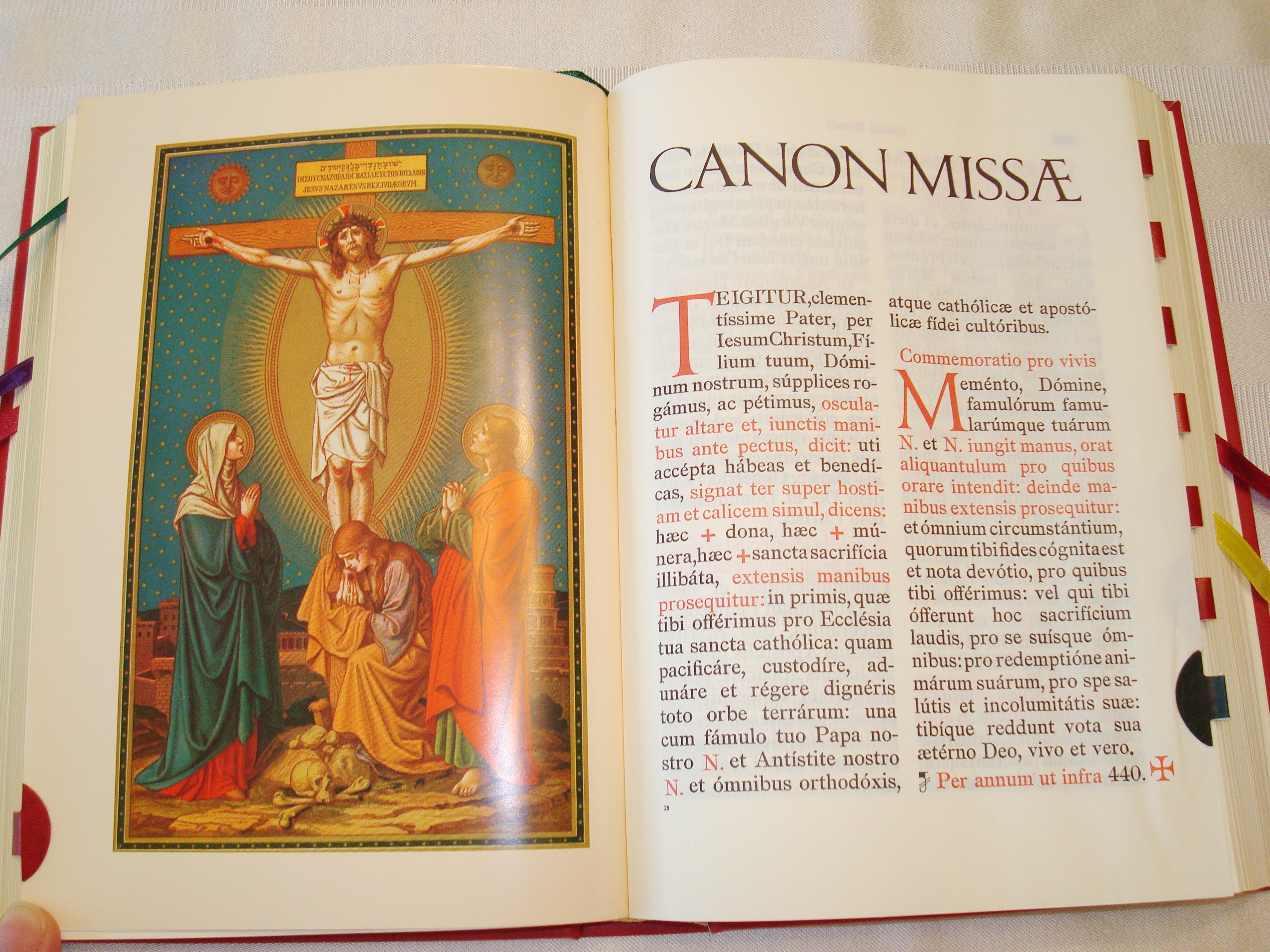 |
| Missale Romanum |
"I was dumbfounded
upon hearing about the interdiction of the old Missal, since such a
move had never been seen in the entire history of Catholic liturgy. The
impression was given that this was all quite normal. The previous Missal
had been realized by Pope St. Pius V, in 1570, immediately following
the Council of Trent (1545-1563); it was therefore considered normal
that, after 400 years and a new Council, a new Pope should therefore
also publish a new Missal. However, the historical truth is another
matter altogether. Pius V had limited himself to republishing the Roman
Missal then in use just as it had always been down through the centuries
of history. Also, many of his successors, following his example, had
also had the Missal republished, without ever opposing one Missal to
another. It has always been a continuing process of historical growth
and purification in which, however, essential continuity had never been
destroyed. There does not exist, nor has there ever existed, a Missal
completely made up by Pius V. There was only a new elaboration ordered
by him, constituting merely a phase in a long process of historical
growth.
Following
the Council of Trent, the new reality was of a quite different nature:
the eruption of the Protestant "reform" had occurred especially under
the form of liturgical "reforms"...; so much so, in fact, that the
limits between that which was still Catholic and that which was no
longer so, were often difficult to define. In such a confused state of
affairs, resulting from a lack of uniform liturgical norms, together
with a liturgical plurality inherited from the Middle Ages, the Pope
decided that the Missale Romanum, that is, the liturgical text
then in use in Rome, was to be introduced everywhere that there existed a
liturgy dating back to less than 200 years previously. The reason for
this was that the timeless Roman liturgy was most assuredly Catholic in
every sense of the term. Wherever it could be done, the preceding
liturgy (i.e., that dating back 200 years or more) was allowed to
be maintained since its truly Catholic character could be considered to
be absolutely certain." - Joseph Cardinal Ratzinger, La mia vita, pp. 111, 112.
No comments:
Post a Comment